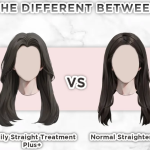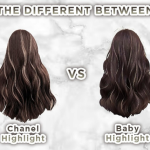It’s never too late to switch to sustainable choices in any and every aspect of your life. By making mindful moves on how you consume in your day-to-day activities, you can thrive alongside nature and save the planet’s biodiversity, which is essential for its future as well as our own. When it comes to beauty, it is really up to us, the consumers, and the brands, the makers, to start the chain of change. Looking for zero-waste and plastic-free products with safe ingredients is as essential as finding the one oil that will give you that glow. Did you know that the sunscreen you use to protect your skin could be harming the life in the oceans in which we swim? Or that the bottle of shampoo that has served its purpose for you will continue to remain on the earth for a long, long time after you’re gone? So, what can you do to make a difference? For starters, join the blue beauty movement, which simply means tweaking your buying habits to ensure what you consume is not destroying the ocean and its ecosystem. Here’s everything you need to know as a beauty consumer to make the right choice today.
Man vs sea, in numbers
Plastic ingestion or entanglement kills over 1,00,000 marine animals yearly. India generates 9.46 million tonnes of plastic waste annually, of which 40 per cent remains uncollected and 43 per cent is used for packaging, and, “out of over a billion different kinds of packaging material used in cosmetics globally, the majority continues to be unrecyclable,” says Vinod Malayilethu, team lead for the Marine Conservations Programme, World Wildlife Fund (WWF) India. More than 120 billion units of beauty packaging are produced globally every year and “one dump truck full of plastic waste enters our ocean every minute, which the equivalent of eight million tonnes of plastic every year, and it’s having a huge impact on our sea-life,” says Paula Chin, sustainable materials specialist at WWF-UK. If this continues, by 2050, a sea of fish will change into a sea of plastics. Plastic entanglement affects the natural environment of most species on the planet. Animals get entangled in large plastic debris, leading to acute and chronic injury or death. Animals also ingest large quantities of plastic and are unable to pass it through their digestive systems, resulting in internal abrasions, digestive blockages and death,” explains Varun Aggarwal, program manager for Climate & Business, WWF-India.
How we can consume better
Step one is to realise how your consumption impacts the environment and then ask yourself, “Do I really need that product?” If the answer is yes, these are the next steps:
-
1
Find a brand that offers reusable, refillable and recyclable packaging. “Support brands and retailers who encourage the return of packaging for recycling and ensure that where packaging is unavoidable, it contains recycled materials as this can reduce the overall carbon impact,” says Chin. Dr Harshna Bijlani, dermatologist and founder of The Ageless Clinic, agrees and advises, “It’s important to do your homework before making your final decision. Read up and check on the brand’s transparency when it comes to its manufacturing, sourcing and packaging processes.” -
2
Read the back of the bottle. Ingredients that are non-toxic, sustainably sourced from nature and are safe for nature is a good sign. “Look out for labels which indicate the absence of ingredients that we know are harmful to the marine environment, such as ‘paraben-free’,” says Chin. -
3
Adapt to a zero-waste life. As much as possible, buy products that have little to no packaging, are plastic-free and are reusable or easily recyclable in your local area. -
4
Switch to physical sunscreens. They contain titanium dioxide and zinc oxide, which do not hurt marine life, unlike ingredients like oxybenzone and octinoxate found in chemical sunscreens.
The ingredient checklist
Navigating a long and vast list of ingredients can be overwhelming. But while each individual ingredient may be deemed safe for use in smaller quantities, it’s important to understand their cumulative impact on marine life and thus understand what’s good and what’s not. This guide sheds light on some critical rules to follow to pick reef-safe, eco-friendly options:
-
1
Chemicals like oxybenzone and octinoxate, often found in sunscreens, are extremely toxic to marine life and have damaging effects on coral reefs. Switch to a sunscreen devoid of them. -
2
Chin warns of the harmful effects of parabens (a form of preservative): “There is research to demonstrate that parabens cause endocrine (hormone) disruption, not only in marine life but potentially in humans too.” -
3
In current times, be vary of triclosan, the antibacterial ingredient found in hand sanitisers. “It accumulates in the cells of marine life, causing impairment of vital organ functions, amongst other things, and can kill them,” says Chin. -
4
Dr Bijlani also suggests avoiding products with ingredients like phenoxyethanol and polyethylene glycols, or products tested on animals, with synthetic fragrances, those that are petroleum-based and anything that’s not readily biodegradable. -
5
Remember that microbeads and glitter in your skincare and makeup are a source of microplastics, so try to look for natural alternatives such as sustainably sourced mica. -
6
While products made with ingredients derived from nature and plant extracts are safer for our oceans, it’s imperative we pick those that are sourced responsibly—with minimal impact on the locations from which they were sourced.
Packaging matters
It’s simple: say no to plastic. And then, opt for products with minimal packaging. Brands today offer reusable, refillable and compostable packaging, as well as packaging-free alternatives such as soap and shampoo bars. With a little bit of digging, you’ll be exposed to a whole new world of zero-waste products that could truly change your life and the world that we live in. Chin stresses on the positive impact of choosing brands that used recycled materials: “This can reduce the overall carbon footprint by as much as 50 per cent.” Aggarwal also reminds us to avoid single-use plastic or picking up products that come in tiny packaging, like shampoo sachets, which are difficult to segregate, sort and recycle.
What the brands are doing
Home-grown zero-waste brand Bare Necessities packages all of its products in reusable glass jars, wrapped in cloth scraps from its local tailor and paper scraps from its printer. “In other words, we only use post-consumer packing materials to ship our products to our customers. We also use paper tape to pack our boxes instead of traditional plastic tape,” says founder Sahar Mansoor. For Chris Birchby, the founder of cult sunscreen brand Coola, it’s important to ensure his product is reef-friendly (as recognised by Hawaii’s government) and organic. “Additionally, a large portion of our suncare collection utilises only non-nano mineral actives, zinc oxide and titanium dioxide,” he says. Coola’s farm-to-face sourcing methodology focuses on organic farms that don’t use pesticides, significantly reducing the impact on waterways and the oceans the products run into.
Chin urges today’s beauty brands to find creative ways to become more sustainable—see if the product can be sold without packaging or if there’s an opportunity to use reusable, refillable packaging. “If not, make sure the packaging can be easily recycled based on local requirements and contains recycled content,” she says. Ultimately, it’s a shared responsibility, and together we can make beauty better.









Recent Comments